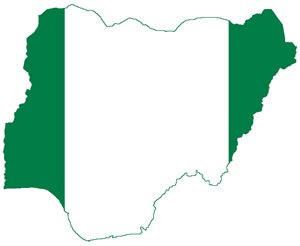Understanding the Nigerian state
A state is a politically organized body of people inhabiting a defined geographical entity with an organized legitimate government. Nigeria as a State attained this status in 1914 upon the amalgamation of the Southern and Northern Protectorate to be known and called Nigeria. A State exists where a territory, a people, a government and sovereignty […]


A state is a politically organized body of people inhabiting a defined geographical entity with an organized legitimate government. Nigeria as a State attained this status in 1914 upon the amalgamation of the Southern and Northern Protectorate to be known and called Nigeria.
A State exists where a territory, a people, a government and sovereignty exist. It may lack the feeling of nationality or oneness among the people and yet remain a state. This speaks volume about the more than a century sojourn of Nigeria as a state until today. The Nigerian state with its coercive power, has over time been able to silent and subjugate all dissenting voices, rebellions, insurgencies, militancy and revolutions. Even the protracted and sustained religious extremism manifesting in Boko Haram’s terrorism is met with the superior coercive power of the Nigerian State.
The later dimension clearly and vigorously aimed at altering the territorial entity called Nigeria by capturing the North Eastern part of it and declaring a Caliphate. This is not just an emulation paradox that may fizzle out with time, but a global phenomenon of reinventing old identities. In all of these, the nations submerged in the state are struggling to exhume old buried cultural and religious identities. The magnetic pull by common identities shared before the colonial powers foisted on diverse ethnic nationalities a nation state.
In response to these myriad of social problems, I refer to some theoretical perspectives for workable solutions. The three major perspectives look at the same social problems, but they do so in different ways. I, for one as advocate of alternative political and economic system subscribe to conflict theory. It states that, society is characterized by pervasive inequality based on social class, race, gender, religion and other factors. It also proffers that far- reaching social change is needed to reduce or eliminate social inequality and to create an egalitarian society.
This conflict theory submission and postulation takes us back to the socio-political and economic formation of Nigeria as a state. As a product of capitalist Europe through colonization, the dominant idea of the state and the ruling class is capitalism. As long as bourgeois values expressed through democracy prevail, no social changes can be feasible.
A far-reaching social change as prescribed by conflict theorists seems the ultimate solution. The discordant colophony of nationalism will ebb only when the basis of the existing state is altered to be replaced with an alternative through the collective struggle of the people of these diverse nationalities.
A nation is a body of people who feel themselves to be naturally linked together, share common ties and believe that they can live happily together. They may express dissatisfaction when they disunite and cannot tolerate subjection to people who do not share these ties. These people often share the same language, culture and have the feeling of a nationality.
Overtime, the modern state begins to equate statehood with nationhood and associating a nation with a united people organized in a state. The state accommodates people of diverse historical background, language, culture, religion and people of homogeneous identity.
European sociologists as spokespersons for their home bourgeoisie maintained that the combination of different nations in one state is as necessary a condition of civilized life as the combination of individuals to form a society. It is against this assumption flowing from the intellectuals who are the philosopher kings that motivated the bourgeoisie of Europe to conceive the thoughts that manifested in the policy of overseas territorial colonies around the world.
The socio-economic, political and religious crises inherent in these former colonies since the flag independence can be traced directly to the thoughts that prompted the policy of overseas colonial territories.
The onus falls on us as a people of these amalgamated ethnics and nationalities to play the role history assigned us.
Agbu Ameh, Founder Generation for Change from Below wrote from Akatekwe Kingdom
